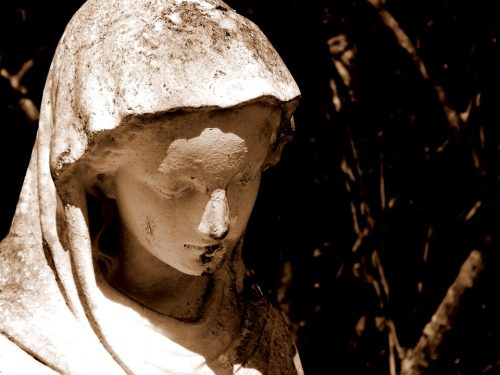I received an email a short while ago from a member of Bayside Church in which he expressed his concerns about comments made by “so-called Christian friends” about matters of theology that were fundamental to his Christian faith.
He told me the following story:
“A very good friend of mine told me that she does not believe in the virgin birth of Jesus and that translation errors in the Bible have resulted in us all believing something that isn’t true.
“This friend has a Theology degree and is quite dogmatic in her beliefs (or lack thereof). She claims that the original Hebrew text of Isaiah 7:14 refers to a “young woman”, not a “virgin”. Apparently, an early translation of the Hebrew into Greek took the Hebrew word ‘almah,’ meaning young woman, and rendered it ‘Parthenos’ in the Greek, which means virgin.
“She has told me that the matter of the virgin birth is a non-issue to her as she says that Jesus’ divinity is evidenced in His humanity. In my view, if we deny the virgin birth, we diminish who Jesus is. If He is not born of a virgin (and therefore by a divine miracle of God), he cannot be fully man and fully God, but just fully man.
“As so much in the Christian Church is being watered down nowadays, I am finding it increasingly difficult to respond to questions such as these. I’d be very keen to know your views on the virgin birth and whether or not this has ‘changed’ in 21st-century theology.”
I love questions like this as they cause me to search the Scriptures for answers. Here’s my reply:
Your friend is partly right, but I don’t agree with her conclusions.
Understanding Context
It’s important to remember that the Hebrew Scriptures (Old Testament) had meaning to their original recipients. Something that is invariably overlooked today, sadly.
I encourage you to read Isaiah 7:1-17 and note its context. Isaiah the prophet is sent to reassure King Ahaz that the attack on Jerusalem (by Aram and Ephraim) won’t succeed. Ahaz is encouraged to ask for a sign from God to confirm this, but Ahaz is reluctant to do so. So, Isaiah gives him a sign anyway, “Therefore the Lord himself will give you a sign: The virgin will conceive and give birth to a son, and will call him Immanuel.” This child would be born and, “before the boy knows enough to reject the wrong and choose the right, the land of the two kings you dread will be laid waste” (verse 16). This would have been a very encouraging message for Ahaz.
Now, the word translated virgin (almah) can mean “young woman or virgin”. In Isaiah’s prophecy, “young woman” is probably correct. It’s likely that Ahaz knows who this young pregnant woman is (it’s possibly Isaiah’s wife, Cf. Isaiah 8:3). So, basically, Isaiah is saying to Ahaz, “as you know, my wife is pregnant and before our baby knows the difference between right and wrong, the lands of those who threatened you will be utterly destroyed. Be encouraged!”
Thus, the baby is a sign that “God is with us” (Immanuel) and will save us from our enemies.
Understanding Greek
Now, in the Greek translation of the Hebrew Scriptures known as the Septuagint (LXX), because it was translated by seventy scholars (between the 3rd Century and 132 BC when it was completed), they rendered the Hebrew word almah as parthenos (Greek) which refers to a young woman (or man) who has never had sexual intercourse (a virgin). I don’t know why they chose this word, but they did, and the New Testament writers picked it up and applied it to Jesus, the Messiah, who was born of a virgin (Matthew 1:18-25; Galatians 4:4-5).
Unlike Isaiah’s sign for Ahaz, this sign from God was to be for the whole world, and not just Jerusalem. And this time the sign was not about a country being delivered from an aggressor but rather people being rescued from their sins. It’s a powerful analogy which lays at the very heart of the Christian faith.
Understanding Sin
I totally agree with you about the importance of the virgin birth. I believe we need to be careful about fiddling with God’s truth, especially the truths that affect a person’s salvation. If Jesus isn’t 100% divine and 100% human, he could not be our Saviour because he wouldn’t be sinless. If that were the case, he would have had to die for his own sins and not ours.
And so, I believe we should boldly proclaim:
I believe in Jesus Christ, God’s only Son, our Lord,
who was conceived by the Holy Spirit
and born of the Virgin Mary.
He suffered under Pontius Pilate,
was crucified, died, and was buried;
he descended to hell.
The third day he rose again from the dead.
He ascended to heaven
and is seated at the right hand of God the Father almighty.
From there he will come to judge the living and the dead.



